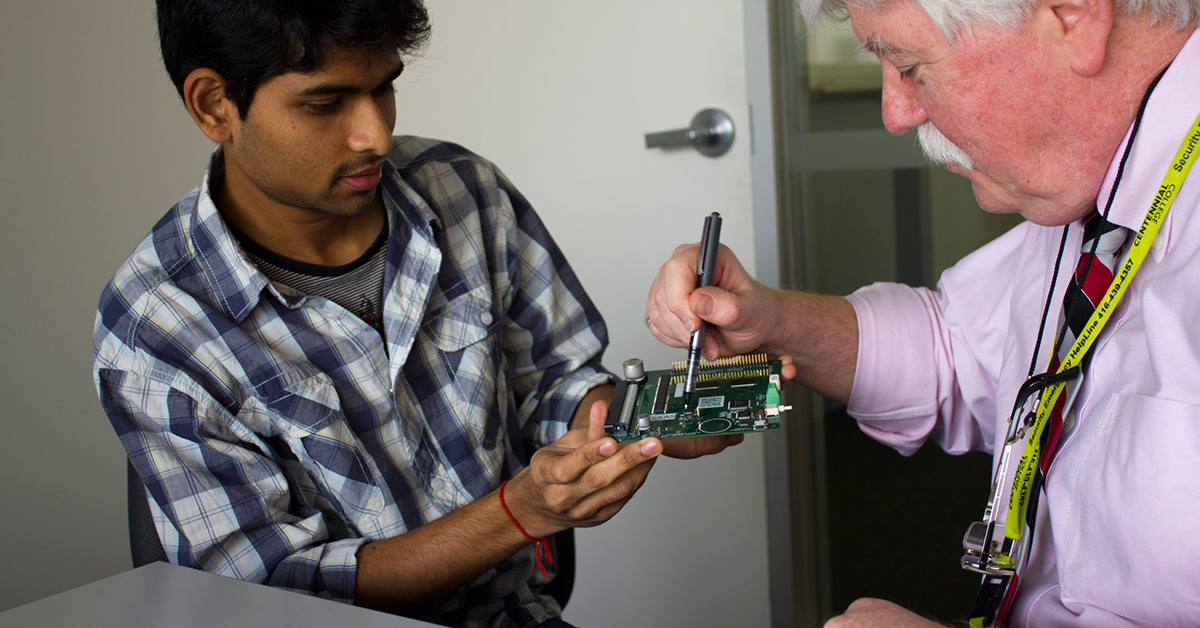Aerospace manufacturing companies build parts using computer numerical control (CNC) machines, high-tech sculpting machines that program the path of the cutting tool in core materials. In this rapidly changing technology field, parts often become obsolete and cost-effective solutions must be found to replace them.
When one of its aerospace clients’ CNC machines needed new memory cards, Nexas Networks collaborated with Centennial College to find a solution. Partnering with the college’s Applied Research and Innovation Centre (ARIC), Nexas Networks and Professor Glen Taylor worked with students to design and prototype a new memory card for the CNC machines.
In four months, they reverse-engineered the old card, and made a newer, faster, and smaller model. They also added new features, including back-up power, so the machine will not forget the shape programmed into it when power fails. The new card was also cheaper to produce, at less than a quarter of the original’s price. The memory card prototypes developed by Centennial students for this project were built at Brantco, an aboriginal-owned company located on a reserve.
The industry partner was grateful for this breakthrough and Tom Gaasenbeek, president of Nexas Networks, was so impressed with the team that he hired one of the student researchers. The company has plans to commercialize the new product and is looking forward to more applied research projects with Centennial College. The college also realized lasting benefits as faculty modified their curriculum based on inputs from Nexas Networks and their research experience.
Students who worked on the project were offered a real world problem where they had to use their training and out-of-the-box thinking to explore all possible solutions and deliver a working prototype.


